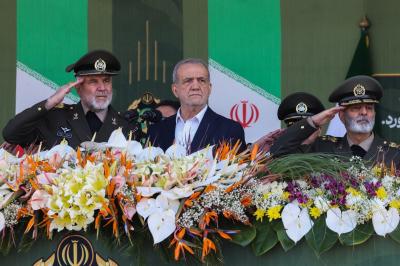Paris has formally concluded its military involvement in Niger, marking a notable pivot in France's African history. The abrupt withdrawal hints at a potential decline of its once-formidable colonial empire, reminiscent of other great empires that reached a tipping point in history. The fall of the Berlin Wall signaled the Soviet empire's end, Macao's return to China spelled the close of the Portuguese empire, and the 1956 Suez Crisis marked the waning of Britain's colossal imperial influence.
France's unforgettable defeat at Điện Biên Phủ in 1954 to the Việt Cộng signaled its exit from Indochina. Algeria's independence in 1962 further diminished France's colonial footprint. Yet, France pivoted from direct military rule in Africa to a more nuanced colonialism, underpinned by cultural and financial ties. This shift began with the establishment of La Francophonie, but the creation of the CFA Franc, a shared currency, anchored this new strategy. West and Central African nations were tethered to the French Franc through centralized banking and print houses, enabling France to funnel an equivalent of $500 billion annually from African revenues—almost a quarter of France's GDP—bolstering its global wealth and prestige.
Driven by economic motives, France often used force and backed regime changes to safeguard its African interests. Its military presence persisted through defense cooperation pacts with African nations, granting French forces wide-ranging intervention rights. In return, France gained substantial economic benefits, including access to pivotal resources like uranium, bauxite, cocoa, oil, and copper. Such arrangements ensured the tenure of pro-French leaders in various African nations, sustaining France's regional clout.
However, France's influence has ebbed and flowed over the years. Despite challenges during the Cold War era and liberation movements of the 60s and 70s, France reclaimed its African foothold post the Soviet Union's fall. Yet, the 90s saw fresh challenges: the passing of key allies like Ivorian President Félix Houphouët-Boigny and its controversial role in Rwanda's 1994 crisis tarnished its reputation. Such events compelled a reevaluation of its African policy, but the changes remained incremental.
While President Emmanuel Macron sought to revitalize France's approach, the global and African landscapes have shifted. Diplomatic gestures and scholarships at dwindling French universities aren't enough to address the profound societal rifts in African nations. The once-dominant French language's sway is waning, as is the impact of material aids. France no longer solely interprets African realities. China, Russia, and Turkey have their African strategies, and even the US occasionally diverges from its traditional African ally.
Significantly, of the 27 coups in Sub-Saharan Africa since 1990, about 80% occurred in Francophone countries, indicating a changing dynamic.
France's once-imperious colonial path is showing fatigue. The recent coup in Niger might just be a watershed moment for France, reminiscent of the Berlin Wall's fall, with significant implications for its African future.
 French
French














